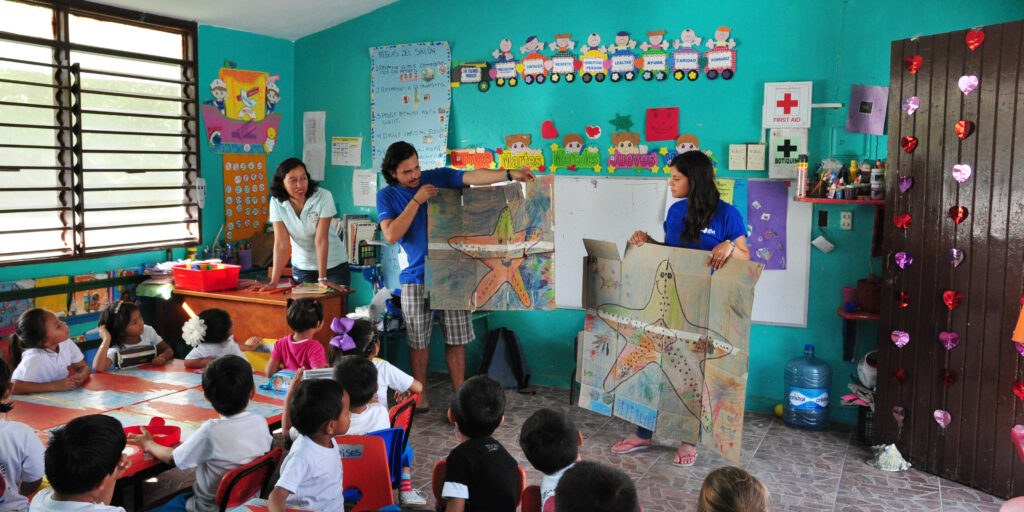It is very important and essential to raise awareness of children about the environment, especially in early childhood, for example, during the nursery period. In this period, when children are informed about the protection of nature and natural resources, it enables them to act consciously about the more efficient use of resources in the future. Environmental education provided in the pre-school period develops children’s sense of empathy and enables them to approach nature more sensitively and lovingly. The relationship between nature and the child, who can communicate, also enables the development of cognitive, psychomotor and affective learning areas. While this affects the development of children positively in terms of mental and physical aspects, it also supports them to exhibit more sensitive behaviors towards the environment.
The importance of giving environmental education to children increases sensitivity and awareness towards environmental problems. It is ensured that environmental pollution is reduced and natural resources are protected. The knowledge and skills required for the protection of ecological balance and biodiversity are learned. An environmentally sensitive lifestyle is formed in the society. Efforts are made to ensure that future generations live in a livable environment.

Environmental education also develops critical and creative thinking skills in children and encourages them to become more involved in the community. Environmental education at an early age enables children to understand how important the environment is for life. Therefore, it creates the necessary building blocks for environmentally friendly and sustainable lives.
Environmental education given to children is not just theoretical knowledge. As well as a variety of practice, it also teaches inquiry and develops in children the question of ‘what I can do to help to save our planet. By asking this question, it supports children to take action and encourages their practice in daily life by enabling them to acquire some habits.
Many different methods can be used to raise awareness of children about protecting nature. For example, children can be taken to parks, forests and gardens to explore nature. Nature walks, nature observation and visiting natural habitats can also help children get to know and protect nature. In addition, doing gardening with children, giving information about recycling and raising awareness about energy saving can also help them raise awareness. Teachers, parents and other members of the community also play an important role in helping children become aware of nature conservation.
For example, many different methods can be used to teach children about energy saving. For example, using energy-saving light bulbs with children, unplugging electrical appliances when they are not using them, using water sparingly, and giving information about recycling can help them raise awareness. In addition, playing games and giving rewards about energy saving with children can help them gain awareness. Raising awareness of children about energy saving is important both in terms of protecting nature and contributing to their families’ budgets.
Another example is that many different methods can be used for recycling. For example, using recycling bins with children, learning about recyclable materials and giving information about recycling can help them raise awareness. In addition, playing games and giving prizes about recycling with children can help them raise awareness. Children who are conscious of recycling are important in terms of protecting nature and leaving a more livable world to future generations.

